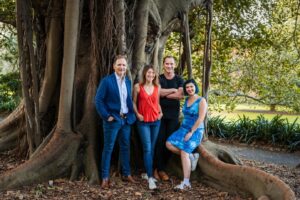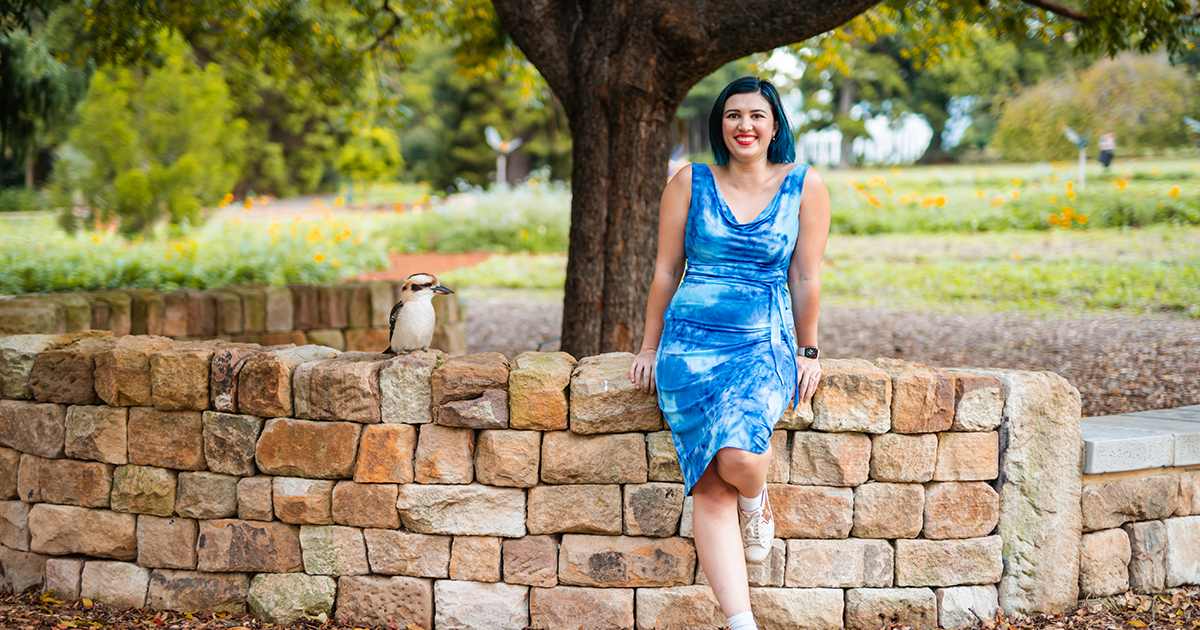Lisa Fedorenko came to College in 2009 and is now an Investment Manager at Alberts, a company focussed on impact investing. She has had a diverse career in finance, from working at Credit Suisse and Montgomery Investment Management before moving into the Venture Capital (VC) Industry. She shared with us insights and advice on a career in VC, explained the importance of impact investing and spoke about her experiences at St Andrew’s.

Please tell us a bit more about yourself – where are you originally from and where did you grow up?
I was born in Moscow, but grew up as a first generation migrant in Australia. I’ve also had the good fortune of living in Paris for 6 months on exchange and a couple of months in New York for work.
What were your favourite memories and how has St Andrew’s influenced your life after College?
Drinking in the corridors and having a family crew to go out with and feel safe alongside. I also enjoyed running the wine and cheese society and acquired a lot of knowledge on wine varieties over my years there.
How did you see the College change for women whilst you were here? And how has it changed since?
I felt that Andrew’s was in the lead for integrating male/ female residencies when I was there, I always felt safe in the environment. It seems to have maintained this standard since.
After College you have gone into working at a number of different investment companies, could you describe your career path to date after college?
After, in true nerd style, doing as much mathematics as I could squeeze into a degree (majoring in advanced maths, computer science and econometrics), I’ve pursued a career in finance. My first role was equity research sales at Credit Suisse where I had the opportunity to work with some of the top researchers and fund managers in the country and participate in corporate transactions such as the IPOs of Alibaba and WiseTech. From there I moved to the buy-side and worked as an investor at Montgomery Investment Management before moving into the Venture Capital industry. I started at Reinventure (Westpac’s VC fund) before moving up the risk curve to earlier stage venture and am now the Investment Manager for Alberts Impact Ventures.
Alberts seems like a fascinating place to work. Would you be able to tell us more about the company and its interests in societal impact as well as your role as investment manager?
Alberts have been in business for 138 years (very patient capital). They’ve always been entrepreneurial and started off selling sheet music before moving into a range of ventures including setting up the ABC radio station, selling Boomerang musical instruments and then into Music Publishing where they backed pioneers like ACDC and the Easybeats. In 2016 they sold the majority of their music publishing interests, but decided to stay in business as a family and more explicitly make a positive impact. That led to the creation of Alberts Impact Ventures which invests in early stage businesses (pre-seed, seed, Series A) making venture-style returns (looking for 100x unicorns) across four impact themes (environmental sustainability, mental health and wellbeing, arts/ music/ entertainment, equality).
My role involves managing our portfolio companies (we’ve made 14 investments to date), finding new deals and working with the founders to help maximise their returns and impact.
What is impact investing?
Impact investing is investing for both commercial and impact returns. Impact needs to be measurable (e.g. how much CO2 is avoided), and tied to the purpose of the enterprise. That way the more commercially successful the business, the greater the impact. One clear example of this is our investment in ULUU who make a plastics alternative from seaweed. For each piece of alternative plastic they sell, there’s a direct CO2 reduction and less plastic.
What are the best parts of your job? And what are the most challenging parts?
I absolutely love working with the founders. You get to regularly talk to inspiring individuals trying to change the world for the better and help them realise their dreams. I’m also very fortunate to work at a company with shared values. Alberts is very committed to our impact themes and we take steps internally to meet these standards, for example, we recently became a B-Corp.
One of the harder parts of my job is saying no. The reality of venture capital investing means we say no to 96-99% of the deals we see. You get better at this in time, but it’s never easy.
What has been your biggest accomplishment so far – career or otherwise?
I’m most proud of the times I’ve helped others reach their goals – thankfully I get to do this a lot working with founders and also through mentoring young women in my spare time.
In terms of personal achievements – buying my first property stands out. My husband and I saved for our own deposit and were able to get into the market during the COVID-19 market correction by rolling up our sleeves and being ready for a good opportunity.
What do you like to do outside of your work?
I do a lot of art, cooking and aerial acrobatics.
What are you reading/ watching or listening to at the moment that you’d recommend?
I’m always reading – some recent favourites include:
- Principles by Ray Dahlio – it’s particularly interesting for company culture
- Atomic Habits by James Clear – one of the best life-hack books
- 21 lessons for the 21st century by Yugal Noah Harari – very thought provoking
- Anyone looking to get into VC should read:
- The Hard thing about Hard Things by Ben Horowitz
- The Lean Startup by Eric Ries
- What You Do is Who You Are by Ben Horowitz
- The Innovator’s Dilemma by Clayton Christenson
Do you have any words of advice to young Androvians thinking of pursuing a career in venture capital?
Be curious and have hustle. Attend pitch-nights, network with founders, develop a skill so you can lean in and help. There isn’t any direct path into venture, it’s more about getting broad experience.
Is there anything else we should be asking you?
‘When do I talk to people about my idea?’
As early as possible, it’s the execution and the people that count – so discussing your idea early and getting the right team around yourself is critical.


